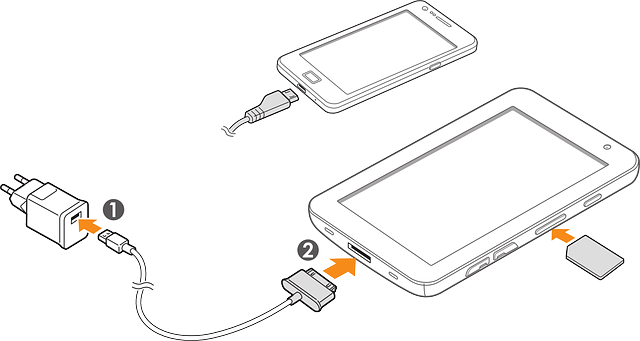North Dakotans should understand the Telephone Consumer Protection Act (TCPA) to combat spam calls from law firms. Residents can file complaints, document abusive calls, and seek legal guidance from spam call law firms North Dakota. Recognize red flags like persistent or frequent calls, report violations to FCC and local agencies, and take legal action for damages.
In North Dakota, residents are protected from unwanted phone calls by state-specific spam call laws. This comprehensive guide delves into how locals can recognize and navigate TCPA (Telecommunications Consumer Protection Act) violations. We explore key aspects, including identifying suspicious calls, understanding your rights, and reporting spam. Learn effective strategies to document and report abusive practices, empowering you to take legal action against offending spam call law firms in North Dakota.
Understanding North Dakota's Spam Call Laws

In North Dakota, recognizing and understanding the state’s spam call laws is essential for residents looking to protect themselves from unwanted telemarketing practices. The Telephone Consumer Protection Act (TCPA) restricts how businesses can contact consumers via phone, aiming to prevent nuisance calls and protect individual privacy. Specifically, these laws prohibit automated or prerecorded calls to cell phones without explicit consent.
North Dakota’s implementation of the TCPA mirrors federal regulations, allowing residents to file complaints against violators through state and federal agencies. If a North Dakota resident receives spam calls, they can take action by documenting the calls, including the caller’s information and call frequency. Engaging with reputable spam call law firms in North Dakota can also provide guidance and legal recourse for individuals facing persistent or abusive telemarketing activities.
Identifying Unwanted Phone Calls in North Dakota

North Dakota residents can recognize potential violations of the Telephone Consumer Protection Act (TCPA) by paying close attention to their phone calls. The TCPA is a federal law designed to protect consumers from unwanted phone calls, including spam calls from law firms or other entities. If you’re receiving persistent or unsolicited calls, it may be a sign of a violation.
One way to identify these calls is by examining the caller’s behavior. If the calls are frequent, occur at unusual times, or the caller refuses to stop despite your requests, these could be indicators of TCPA violations. Additionally, look for any pre-recorded messages or automated systems when you answer, as these are often associated with spam calls from law firms attempting to solicit clients. Familiarize yourself with your state’s laws and rights regarding telemarketing practices to better protect yourself from unwanted phone interactions.
TCPA Violations: Your Rights and Resources

In North Dakota, recognizing and understanding TCPA (Telephone Consumer Protection Act) violations is crucial for residents to protect their rights. The TCPA is a federal law designed to prevent spam calls and safeguard consumers from unwanted marketing tactics. If you’ve received unsolicited phone calls or text messages from call centers or law firms, it could be a violation of this act.
North Dakota residents have resources available to them if they believe their privacy has been invaded. The TCPA allows individuals to take action against companies or organizations that make or cause spam calls. This includes filing complaints with the Federal Communications Commission (FCC) and seeking legal assistance from reputable law firms specializing in TCPA violations. By knowing your rights under this spam call law, you can take proactive measures to stop unwanted communications and potentially seek compensation for any distress caused.
How to Document and Report Spam Calls

Recognizing and documenting spam calls is a crucial step in reporting potential TCPA (Telemarketing Consumer Protection Act) violations. In North Dakota, residents can take action by keeping detailed records of suspicious phone communications. Start by jotting down the caller’s phone number, the date and time of each interaction, and a brief description of the message or call content. If possible, record the calls—with the caller’s consent—as evidence. Many smartphone apps can assist in this process by automatically logging and categorizing spam calls.
Once documented, report these incidents to local law enforcement and reputable consumer protection agencies, such as those affiliated with the North Dakota Attorney General’s Office. They can guide residents on the best course of action, which may include contacting the offending call centers directly or filing a complaint with the Federal Communications Commission (FCC). This process helps enforce the Spam Call law firms and ensures that North Dakota residents’ rights are protected in this digital age.
Legal Action Against Violating Law Firms

If a law firm in North Dakota is found to be engaging in spam call activities, residents have legal recourse. The Telephone Consumer Protection Act (TCPA) prohibits such practices and provides for individual and class action lawsuits against violators. Residents who receive unwanted calls from law firms can file a complaint with the Federal Trade Commission (FTC), which has authority over TCPA enforcement. Additionally, many state laws offer further protections, allowing individuals to seek damages or injunctive relief directly through the courts.
Legal actions against spam call law firms can result in significant penalties for the offending parties. Residents who successfully sue under the TCPA may be entitled to receive up to $500 for each violation, with treble damages (three times the amount) available if willfulness is proven. These legal avenues empower North Dakota residents to hold accountable those law firms that engage in deceptive or harassing phone practices and protect their rights under federal and state consumer protection laws.






